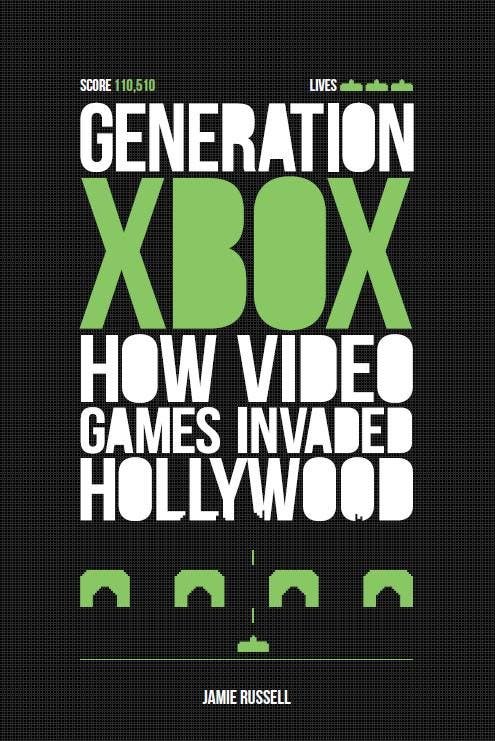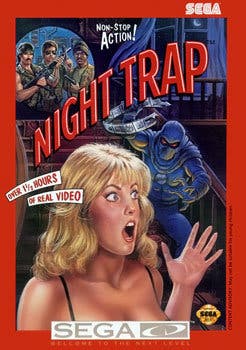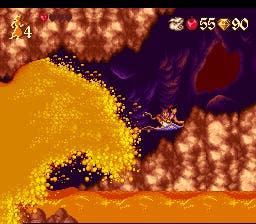Book Review: Generation Xbox
A definitive history of the intersection of the games and movie industries.
Generation Xbox: How Video Games Invaded Hollywood by Jamie Russell; Yellow Ant, paperback
Generation X is a label that's been around for a while, but it was popularised by Douglas Coupland's 1991 book. He's a faddish author - always writing of the moment, for the moment - and the best anecdote about his book concerns Richie Edwards of the Manic Street Preachers, who found himself seated next to Coupland at a dinner shortly after its release. The author's introductory gambit: "So, are you a member of Generation X?" Edwards turned his back on Coupland and refused to acknowledge his presence for the remainder of the evening.
Such are the pitfalls of generalisations - because, of course, humans are pretty complex things. The title Generation Xbox is a clear tip of the hat to the Generation X idea, but the reasons for it are mystifying. Throughout, you suspect that author Jamie Russell doesn't have much faith at all in this term. It never quite fits, and by the end you suspect it's just there for a saleable cover.

Generation Xbox are 13-34 year old males, which is a pretty broad church. They "lived through the era of Sony PlayStations and Microsoft Xboxes [and] were born into a world where video games were already a viable storytelling medium," says Russell. "They don't need convincing that games can be more exciting, addictive and involving than movies." Does Generation Xbox really exist? Well, there's no proof here.
And it's not really what Generation Xbox is about. This is a far, far better book than its title implies, one of the most meticulously researched analyses of video game history (albeit in a limited field) you'll ever read. Russell's subject is the intersection between the games industry and the movie industry, with a special interest in Hollywood, moving from the early '80s and the famous incident of E.T. cartridges being dumped in a desert right up to the present day and Ubisoft establishing its own production studio for an Assassin's Creed flick. It's a wonderful tale, full of heroes and villains, and it's never been told in quite so much detail.
"This is a far, far better book than its title implies, one of the most meticulously researched analyses of video game history (albeit in a limited field) you'll ever read."
Take that E.T. game. Most of us know the basic outline: in the early '80s Atari, drunk on its own success and believing the tie-in to a Spielberg blockbuster was a sure thing, over-produced its E.T. title beyond reason, manufacturing more copies than there were consoles in American homes. Not only did the game stink (and Generation Xbox explains exactly why - it was coded and manufactured in five weeks) but it failed to sell. Faced with warehouses full of worthless stock, Atari simply decided to get rid of it all.
Not only does Russell have the full story of the game's genesis and production, but he digs up quotes from the guys who buried it. "We're covering them with garbage and then with dirt," said Ed Moore, one of the drivers. "I've been crushing them as fast as they dropped off the trucks with my Caterpillar. It's kind of sad." This is the kind of contemporary colour that brings this tale of visionary dreamers and profit-chasing schemers to life.

It's a book that, at heart, is about an impossible dream: the interactive movie. Don't it sound grand? For four decades, countless creatives and investors have thought so, and Russell takes us from E.T. to Avatar, with everything from Dragon's Lair and Night Trap to Medal of Honor and Heavy Rain in between. Anyone with an interest knows the broad outlines, but Russell goes deeper than ever before, with an outstanding cast of interviewees and insights into the production of almost every major game and movie that crossed into the other side's territory.
The most interesting of these are, needless to say, the disasters. Russell's account of the Super Mario Bros. movie is the definitive one. This bizarre tale is told all the way from script to premiere, incorporating every major player and giving substance to or debunking every legend about the production. Nintendo Japan's contribution is to send a poster of all the characters from the series. Hiroshi Yamauchi doesn't seem to care whether or not it gets made, Bob Hoskins orders crates of scotch to get through the filming ("F**kin' idiots!") and the husband-and-wife team assigned to direct are hopelessly out of their depth. "It was like being directed by Chip & Dale," says John 'Luigi' Leguizamo. "That's why a ship has only one captain."
"Russell's account of the Super Mario Bros. movie is the definitive one... Hiroshi Yamauchi doesn't seem to care whether or not it gets made, Bob Hoskins orders crates of scotch to get through the filming and the husband-and-wife team assigned to direct are hopelessly out of their depth."
No other video game movie seems quite as bad after this. Productions like Mortal Kombat are cheerfully made in the most cynical manner and no one really takes things seriously until Lara Croft comes along. Russell's great on the lead-up to the Tomb Raider movie and particularly sharp on what its success did to Hollywood perceptions of the games industry. The simple fact that an A-lister like Angelina Jolie is dieting to get into what she calls "those f**king shorts" tells its own story.
It's all about egos. Young, brash go-getters on the make pitted against old, arrogant executives who don't really care what the kids are into these days - the common ground between them being numbers. Deals are made and signed between people who know nothing of the properties they're dealing with, options are outlined and cuts are taken by everyone involved. It's a fascinating insight into a world most of us will never know, and though Russell's obviously enamoured with the fantasy, he's never bedazzled.

Unlike many game studios. One of the most interesting threads in the book is how games change from being the minor partner in the 1980s and early 1990s (literally, in the case of Atari and Lucasfilm Games) to being able to dictate terms to the studios - and, in recent years, ignore them entirely. One of the book's finest moments is a dissection of the Halo movie that never was, a project with a script by Alex Garland that was good enough to win Bungie's approval undone by Microsoft's uncompromising approach to Hollywood. As Larry Shapiro, one of the most brilliant supporting characters in Generation Xbox, says: "What the games industry doesn't understand is that this town is all about lunch."
As more and more books about video games are published we're starting to see the same material repeating, but Generation Xbox is almost entirely fresh. It's full of facts you don't expect and nuggets about things you never knew existed - like 'That's Life', a project Spielberg tried to kick-start with Dreamworks Interactive. This was going to be the first gaming romcom, and Spielberg's personal involvement ensured figures like Nora Ephron (the screenwriter of everything from When Harry Met Sally to Sleepless in Seattle) were ostensibly involved - though, in reality, no-one even knew how to start making it.
"It's a fascinating insight into a world most of us will never know, and though Russell's obviously enamoured with the fantasy, he's never bedazzled."
The only big omission in Generation Xbox, and you can't really blame Russell for this, is Spielberg himself. The director crops up again and again: an engaged and curious figure hanging around Lucasfilm Games in the 1980s, a passionate and involved investor-stroke-creative at Dreamworks in the 1990s and a frustratingly peripheral presence in the 2000s with EA's LMNO and Boom Blox. There's detail about Spielberg's involvement in games you won't find anywhere else, but he's such an interesting and overwhelming presence in sections of Generation Xbox that his absence as an interviewee sticks out. Russell manages to rope in his son Max Spielberg, who now works in games himself and is an engaging figure, but even so there's a hole.

This shouldn't detract from Russell's achievement. Generation Xbox is 291 pages long and packed with things you've never read before. The making of Dragon's Lair is told by its creators, while the backstories to games like Ground Zero Texas and Sewer Shark are fascinating. There's Chris Carter, sitting in a room with the poor guy who wants to make an X-Files game, saying simply, "What can you do that I can't?" There's amazing detail about Lucasfilm Games and titles like Indiana Jones and the Fate of Atlantis - and perhaps the book's finest section concerns the making of Medal of Honor, detailing the intentions and inspirations behind the game that popularised the World War 2 shooter. They might surprise you.
Generation Xbox has its problems, but they're really ones of focus rather than content. This is not a history of narrative games, yet it implies that the only narrative games are those that converge with movies. And it's not really critical about its subject. While Russell's happy enough to dismiss early FMV games as the dead ends they were, he's bewilderingly starry-eyed about Heavy Rain and devotes far too many pages near the end to Avatar. This movie is regarded as some sort of convergence point, which is obviously convenient for a book published in 2012 - but while it may have roots in gaming technology, the idea that it was a success because it appealed to "Generation Xbox" needs more evidence. As important a milestone as Avatar is in certain respects, Russell can never quite brings himself to say that it sucks.
For a phrase that's also the book's title, Generation Xbox doesn't turn up too much: the introductory chapter, a few cameos throughout, and a bit of dutiful cramming at the end. That's because it doesn't matter. There's no great theory to back it up, nor any stats. Generation Xbox isn't about Generation Xbox.
Instead, it's a superb and often elegantly written book about the convergence of two industries that, even now, eye each other warily across the table and worry about what the other is doing. This is only part of the history of videogames, but Generation Xbox offers a fascinating and definitive account that's expertly researched. As for the phrase itself, it's easy enough to turn your back on.

